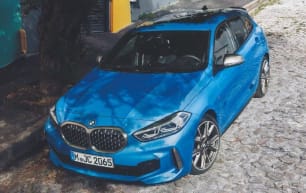All reviews
Browse over 12,000 car reviewsFamily
Family focused reviews and advice for everything family car relatedCompare cars
We make it easy to compare design, practicality, value and moreAdventure
Off-road car reviews and advice, plus camper trailers, caravans and motorhomesOwner reviews
Read car reviews written by real owners – and write your ownTradies
Ute and commercial vehicle reviews, including GVM and towing tests, plus related adviceBest cars by category
Latest news
What's happening in the automotive worldConcept cars
The most interesting hints of what's to comePodcast
Watch or listen to major developments, and get to know our experts betterRecalls
What's been recalled and why. Are you affected?Technology
The latest and future car tech from around the worldAll advice
We’re here to help you with comprehensive car adviceFamily
Expert tips for travelling with your familyAdventure
How-tos, off-road tips and adventure travel destinationsTradies
Advice on getting the most out of utes and commercial vehicles for workAsk the guide
Got a question? Our car experts are here to helpIs it illegal?
If you're wondering, we've probably got the answerTowing capacity
Unsure of your car's maximum towing capacity? We've listed all relevant models here.Tyre pressure
Wondering how much air to put in your tyres? Our database has the answerSafety
Everything you need to know to keep you and your family as safe as possibleEV
Expert advice that’s specific to electric and hybrid carsUrban
Tips and advice on how to make the most of city lifeCar dimensions
Everything you need to know when sizing up your new carGuides






